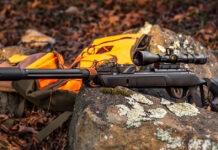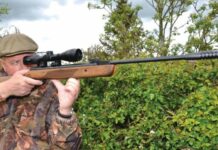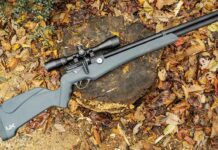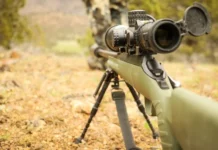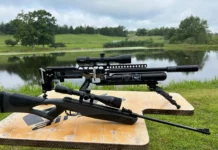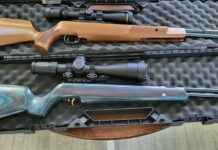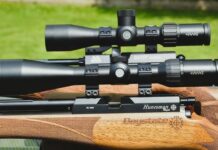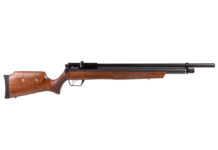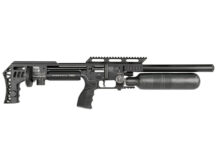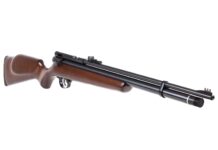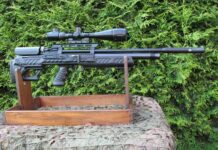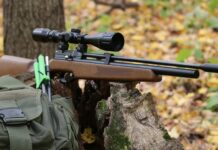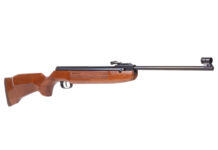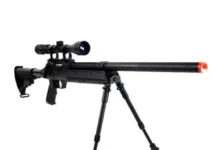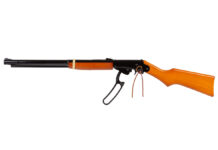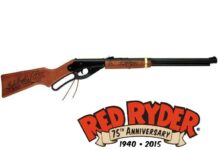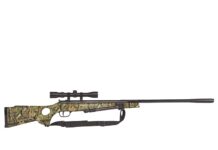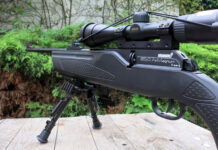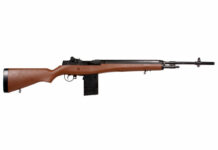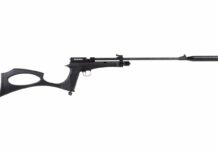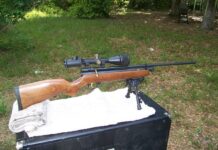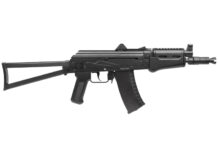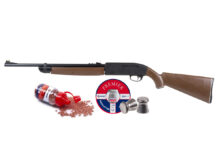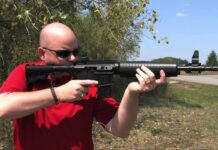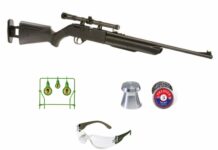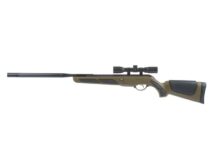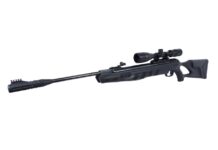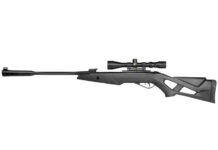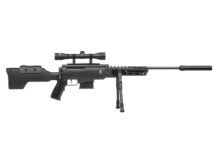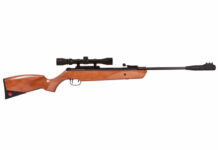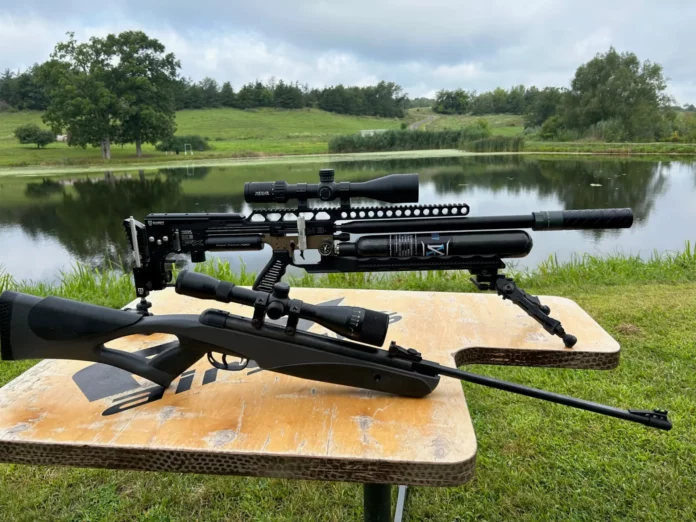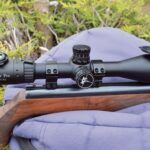The perfect airgun is a difficult pick when you are new to gun-hunting.
There are a lot of things to keep in mind, starting from technicalities to their functionality.
Once you have decided on what your budget is going to be, there is also the problem of the power source for the rifle that needs to be taken care of.
Buyers usually have the most problems regarding this aspect.
Before, the gas piston gun is among the favorite. However, recently PCPs or Pre-Charged Pneumatics have started becoming more popular than their rival rifle.
So which one is the better option?
Luckily, this article will explain how you need to go about gun buying, the pros, and cons of both types, and some things you need to consider before becoming a rifle owner.

Table of Contents
What is a Gas Piston and How Does it Work?
The gas piston is a more advanced version of its earliest gun ancestor, the spring-piston gun.
It is more sophisticated than the latter with its autoloading technology and gas-operating system.
The gas piston is powered by a gas-filled cylinder present in the chamber of the gun from where the gas goes off through a tiny hole present at the top of the barrel.
Here is exactly how the gas piston works:
- Upon cocking the gun, the gas cylinder gets more compressed by the pressurized air in the gas cylinder.
- Since the air inside is compressed at very high tension and pressure, upon releasing the trigger, the pellet is forced out of the gun through pressurized air.
This mechanism is faster as compared to its older version and has proved beneficial due to its automated reloading.
What are PCPs and How Do They Work?
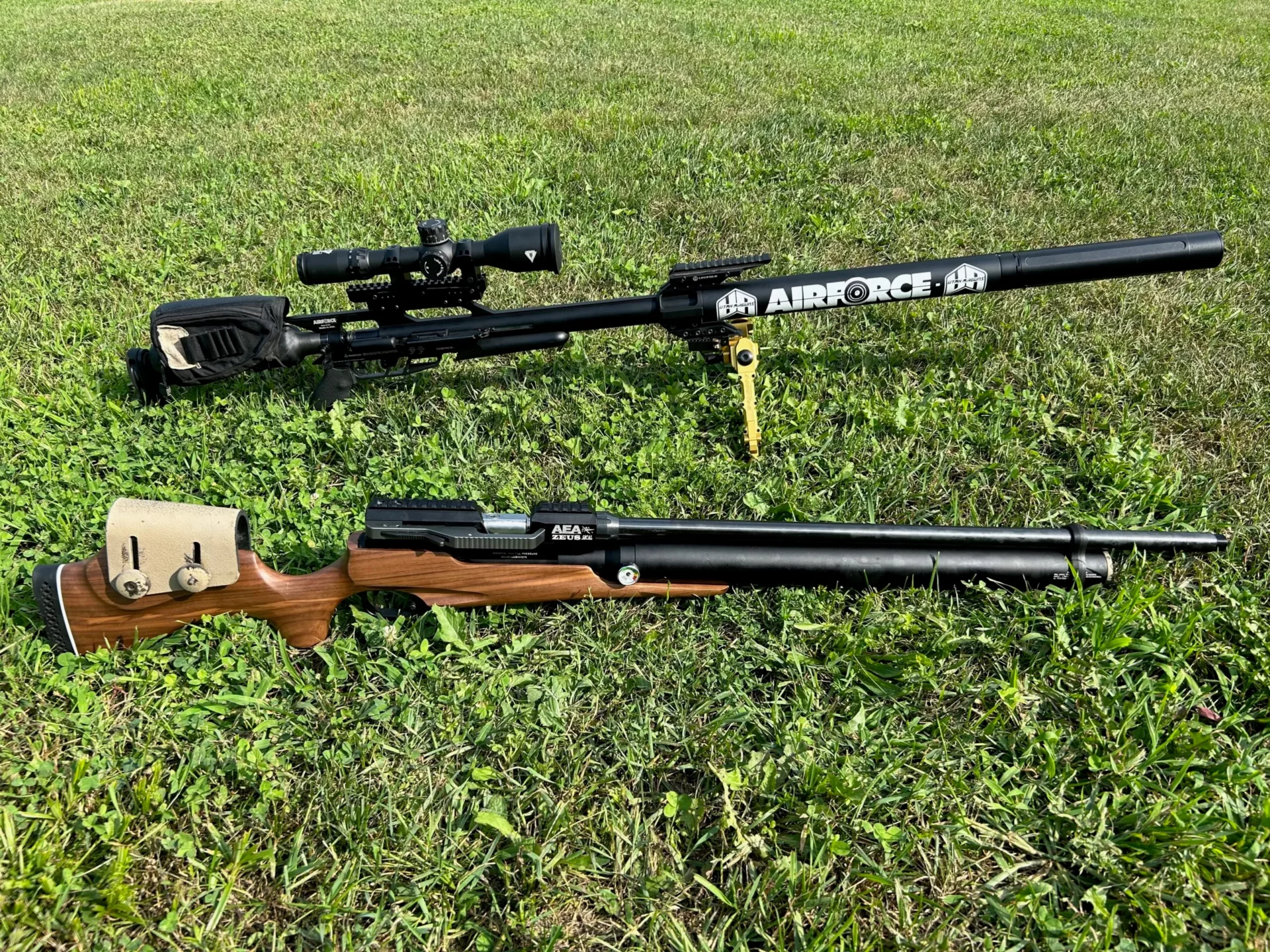
Pre-Charged Pneumatics or PCP air rifles use compressed air stored in built-in air tanks as the propellant to fire pellets. This may sound similar to what a gas piston works like, so to understand the mechanics of PCPs, here is exactly how their firing procedure works:
- The air inside the PCP air tanks is compressed to about 2700-3000 pounds per square inch using a hand pump, or other pumping devices, such as air compressors or carbon fiber tanks. When filled to the correct pressure, it is ready to fire.
- The trigger is directly connected to a valve from which a small amount of air is released upon squeezing it.
- Air pressure pushes the pellet out through the barrel and then out of the gun.
- With each shot, pressure is reduced along with the amount of air in the tank which needs to be refilled after it has completely been exhausted.
- Since PCP works with air pressure, it does not fire accurate shots when low on air pressure as it needs to be recharged to get optimum firing capability.
This may vary according to different companies and models, but a good, average PCPs can shoot somewhere up to 30 – 400 shots before you will need to recharge it.
PCP vs Gas Piston (Main Differences)
The main difference between a PCP vs a gas piston air rifle is the advancement in its structure.
While gas pistons are almost the same as their spring gun relatives, the only difference is that instead of a spring, there is a gas-filled cylinder. Alternatively, PCP has compressed gas already stored within the cylinder which does not require frequent reloading.
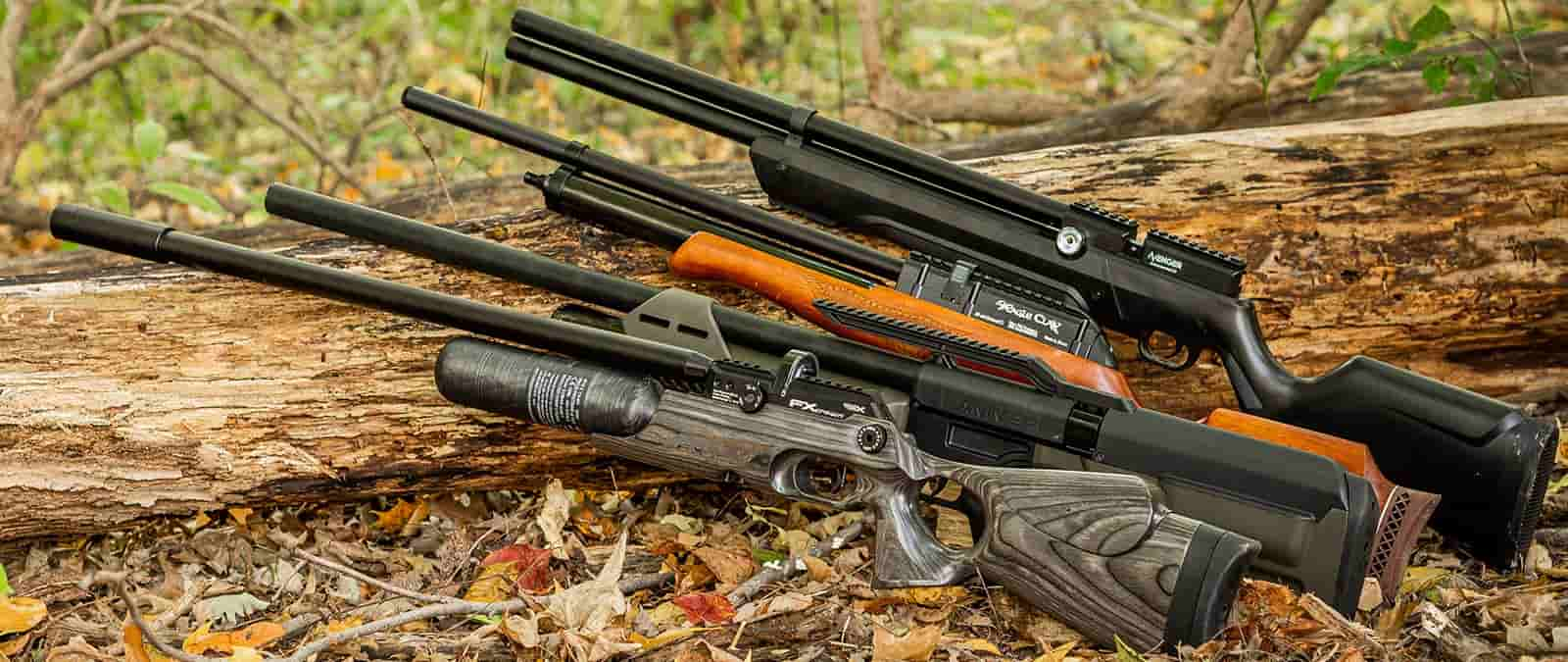
Power
Though both the guns work on the same air compressing system, it is no doubt that when it comes to PCP vs gas piston air guns, then PCP is more powerful in comparison.
A gas piston can offer around 1000 ft/s velocity. This means that for .22 caliber pellets, the velocity will be near 850 ft/s.
You will certainly be able to get pre-charged pneumatics in small calibers, but they come into their own in larger sizes as well. From .30 up to .50, these PCP rifles are available from several manufacturers with energies above 200 ft-lbs.
(For more on the best PCP air rifle on the market, see this post)
Accuracy
There is a certain belief that there is no recoil when a PCP is shot. However, the recoil is present when you shoot from a PCP. But, the impact is certainly lesser than that of a gas piston. This greatly affects the accuracy of the guns.
Upon firing, you must allow the gas piston to complete the recoil phase and come to rest in the original position it was in before. This is the only way it will be truly accurate. You have to make sure that your grip is gentle as well as the same for every shot that is taken. Once mastered, gas pistons can be extremely accurate.
Meanwhile, when using a PCP, recoil is minimal and the shooter has the freedom to choose different sorts of holds without being worried about the pellet misfiring as long as their head and eye position remain constant throughout.
Noise Level
In the noise department, the PCP vs gas piston pellet gun is sort of useless as both are noise-friendly guns – in the sense, they do not make much noise.
Gas piston guns often come with a ‘Sound Suppression Technology” which is built in to dampen the noise from the gun. A fluted shroud is used to keep the gas chambers enclosed which keeps the sound from escaping, reducing noise significantly.
PCP air guns, being the advanced predecessor of guns, are also built to be quiet compared to other rifles. Since it produces very little recoil, the sound is also at a minimum.
Upkeep Cost
Being newer gun models, it is certain that PCP guns cost more than gas pistons. The starting price range of a decent one will begin from $400.
You also need to keep in mind the additional expenditure that will follow for your PCP gun’s maintenance.
Refilling the air cylinders can get quite heavy on the pockets as prices start at $200 and go upwards. Getting a stirrup pump that starts at 100$ is a more economical option that can save you the extra expense of refills with the only downside being that it is a laborious job.
Gas pistons on the other hand are much cheaper and you can get one of the better ones with even the upper limit being just $200. Little to no maintenance is required apart from the usual cleaning and loading, but it can be expensive to get it fixed.
(For more on the best air rifles on the market, see this post)
PCP Vs Gas Piston – Which One Is Better for Pest Control?
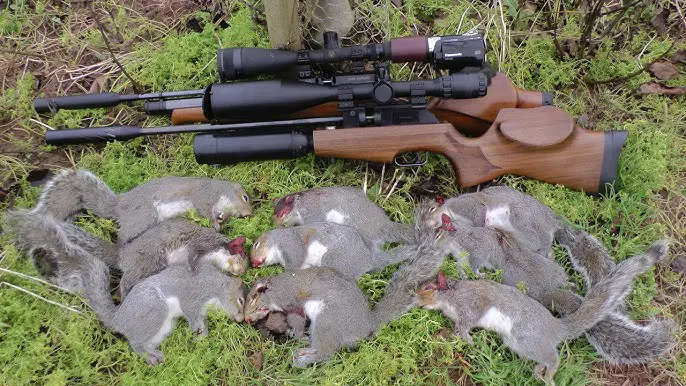
Gas pistons have a recoil and grip system. Not being very different from spring air guns, they need control to shoot accurately. The noise-suppressing system is a great advantage for pest control which requires stealth and silence.
It is obvious that PCP guns, being soundless and with no grip and position requirements, are the more comfortable options out of the two. But, they are unnecessarily high maintenance for a rifle just there for normal pest control.
Considering that both PCP guns and gas pistons are good picks for those who want to avoid noise and not scare off pests, the debate on which one is great for killing little critters comes down to just the prices.
Personally, if your gun is just for pest control and safety, gas pistons that are low maintenance and cheap are the right option.
(For more on the best air rifles for pest control, see this post)
PCP vs Gas Piston – Which One Is Better for the Hunting Game?

Both PCP guns and gas pistons are equally good for hunting. With both of them making minimum sound and movement, which one is better depends on the type of hunting you are doing.
If it is just pest control or small hunting games, where things are not as serious, a gas piston will be a good option. It fits under the budget and works almost as well as a PCP.
However, if the hunt is serious, or if the situation is about saving time and energy, a PCP gun will be more advantageous as it loads quicker, is silent, as well as far more accurate.
(For more on the best air rifle for hunting medium games, see this post)
Conclusion
Gun enthusiasts, just like fans of any other machinery, will tend to prefer the newer models that are built lighter and more efficiently. However, guns are also instruments with their little tweaks and treasures. So, to find one that suits you, whether an older or newer model, is completely up to what is best built for you.
You can choose a gas piston over a PCP gun if:
- You are a beginner at guns and hunting and want something that is at the same price as a traditional spring gun but also has some features of a PCP.
- Your budget is not very high and money is a priority.
- Your main use of the gun is going to be simple hunting games, pest control, and the occasional shooting.
- You need a gun that can be kept around the house without any risk of high maintenance.
A pre-charged pneumatic gun would be the correct option for you if:
- You have quality as your priority and do not have many limitations to your budget.
- You want to go for professional hunting which may require a lot of time and energy.
- You do not want to deal with the hassle of a steady grip and recoil while shooting.
- You are experienced with guns and will have no problems maintaining them.



